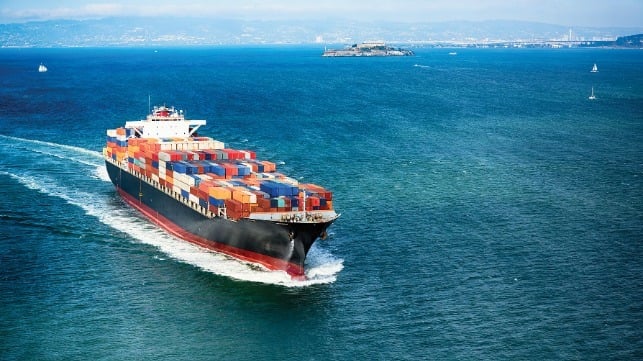UN Report: Freight Rates, Shipping Cast Shadow Over Economic Recovery

The United Nations trade and development agency, UNCTAD, is warning that global consumer prices will rise significantly in the year ahead until shipping supply chain disruptions are unblocked and port constraints and terminal inefficiencies are tackled. In newly issued reports, they are saying that the global economic recovery is being threatened by high freight rates and the residual effects of COVID-19 on the shipping industry. They are calling for immediate investing in ports and infrastructure as well as urgent attention from flag, port, and labor-supplying states to end the crew change crisis which is threatening the positive outlook for the maritime trade.
“The current surge in freight rates will have a profound impact on trade and undermine socioeconomic recovery, especially in developing countries, until maritime shipping operations return to normal,” said UNCTAD Secretary General Rebeca Grynspan. “Returning to normal would entail investing in new solutions, including infrastructure, freight technology, and digitalization, and trade facilitation measures.”
The mismatch between surging demand and de facto reduced supply capacity. UNCTAD says has led to record container freight rates on practically all container trade routes. UNCTAD’s analysis shows that the current surge in container freight rates, if sustained, could increase global import price levels by 11 percent and consumer price levels by 1.5 percent between now and 2023.
Their analysis also shows that the impact of the high freight charges will be greater in small island developing states, which could see import prices increase by 24 percent and consumer prices by 7.5 percent. In the least developed countries, UNCTAD reports that consumer price levels could increase by 2.2 percent.
According to the report, the surge in container freight rates will add to production costs, which can raise consumer prices and slow national economies, particularly in smaller and lesser developed countries, where consumption and production are highly dependent on trade. The high rates will also impact low-value-added items such as furniture, textiles, clothing, and leather products, whose production is often fragmented across low-wage economies well away from major consumer markets. UNCTAD predicts consumer price increases of 10.2 percent in these categories.
UNCTAD emphasizes that transport costs are also influenced by structural factors, including port infrastructure quality, the trade facilitation environment, and shipping connectivity. For those reasons, UNCTAD is urging a portfolio of measures that span hard and soft infrastructure and services.
“Improving the quality of port infrastructure would reduce world average maritime transport costs by 4.1 percent, while costs would be reduced by 3.7 percent by better trade facilitation measures and by 4.4 percent by improved liner shipping connectivity,” write UNCTAD. It calls on governments to monitor markets to ensure a fair, transparent, and competitive commercial environment and recommends more data sharing and stronger collaboration between stakeholders in the maritime supply chain.
At the same time, in a parallel report, UNCTAD raises concerns about the continuing pandemic-induced strains of the maritime industry, including the crew change crisis, saying that it is creating “mounting risks and uncertainties” for maritime trade which in turn could have far-reaching effects. Saying that supply chain bottlenecks have hindered economic recovery, among the actions they are calling for continuing focus on maritime operations including crew changes to help address issues ranging from shortages of equipment and containers, less reliable services, congested ports, as well as longer delays and dwell times.
“By exposing the vulnerabilities of existing supply chains, the COVID-19 disruption has sharpened the need to build resilience and revived the debate over globalization and the supply chains of the future,” said Shamika N. Sirimanne, UNCTAD’s director of technology and logistics.
They highlighted positive results, including the drive for digitalization and automation, “which should deliver efficiency and cost savings.” They, however, also point to trends such as reshoring and nearshoring that could produce hybrid operating models involving just-in-time and just-in-case supply chains which could require more flexible shipping services.

that matters most
Get the latest maritime news delivered to your inbox daily.
The UN trade organization concludes that the trends at play have implications for vessel types and sizes, ports of call, and distances traveled. They see the possibility for new business opportunities for shipping and ports. UNCTAD says global economic recovery will depend on smart, resilient, and sustainable maritime transport.
